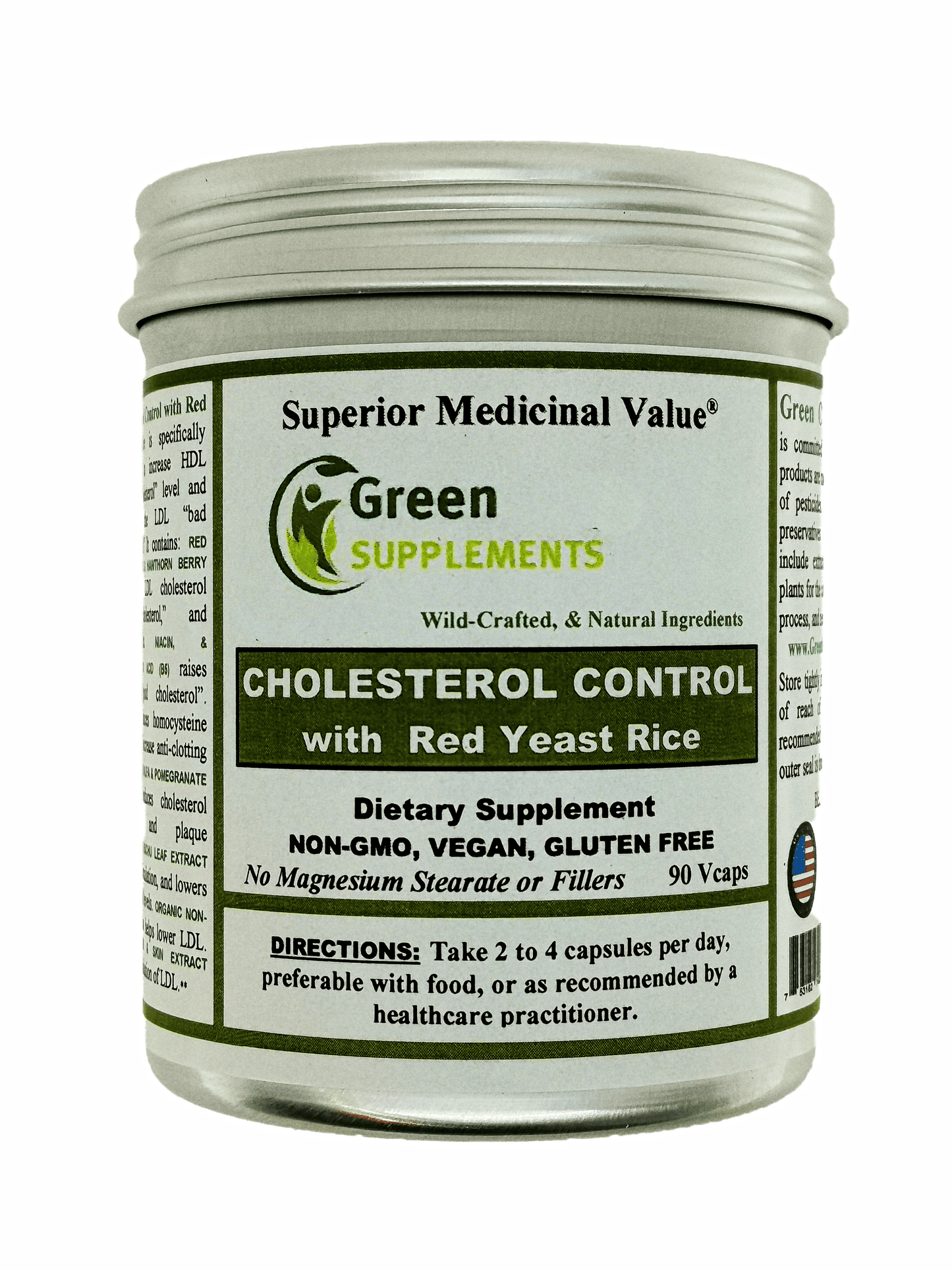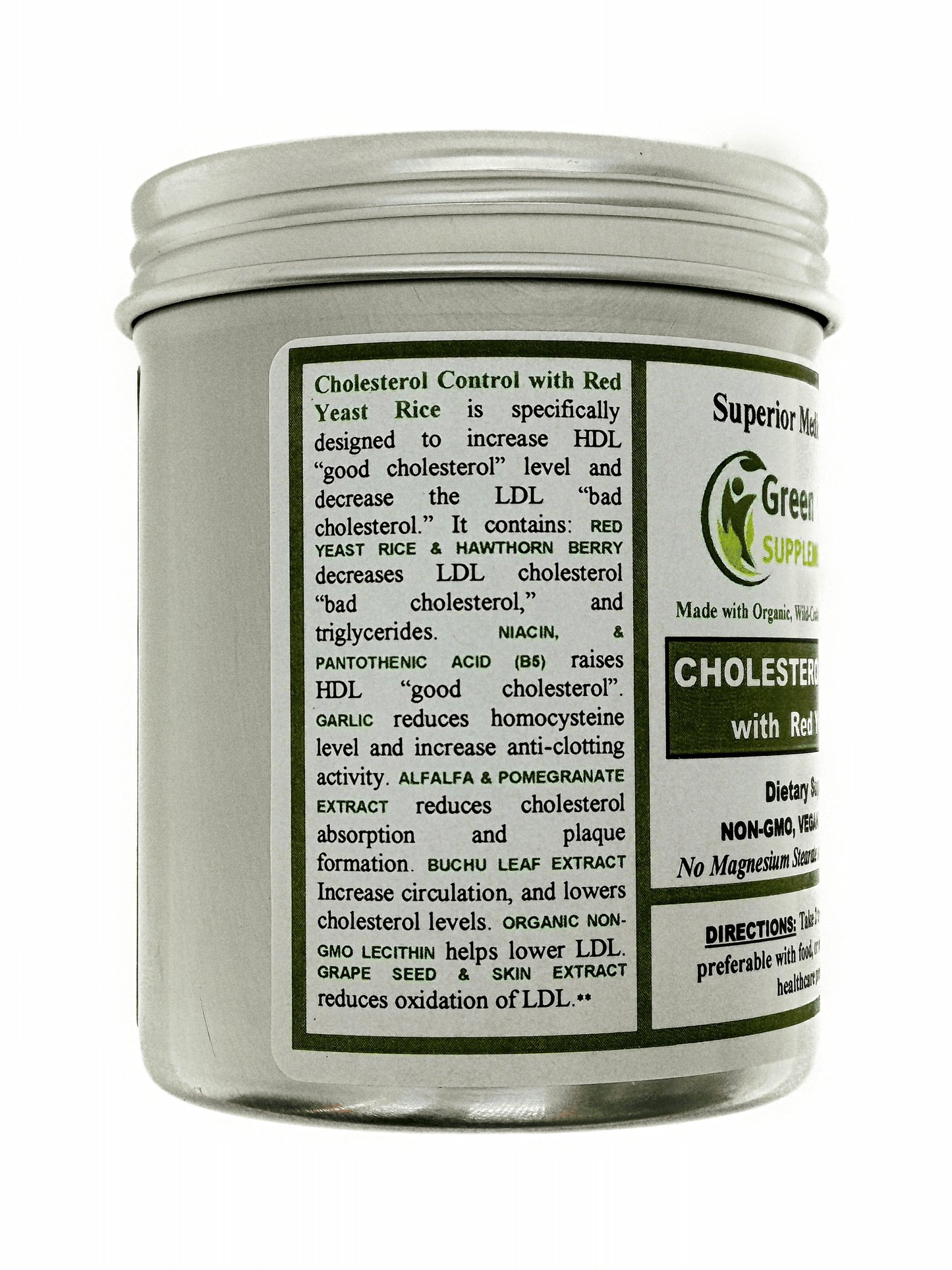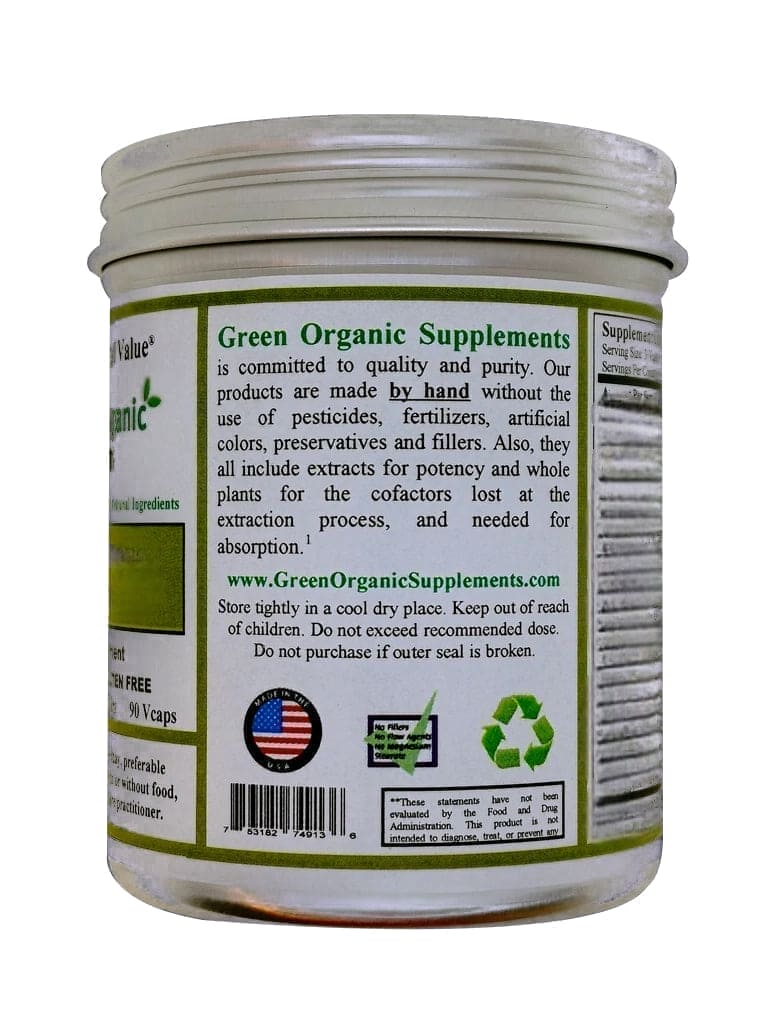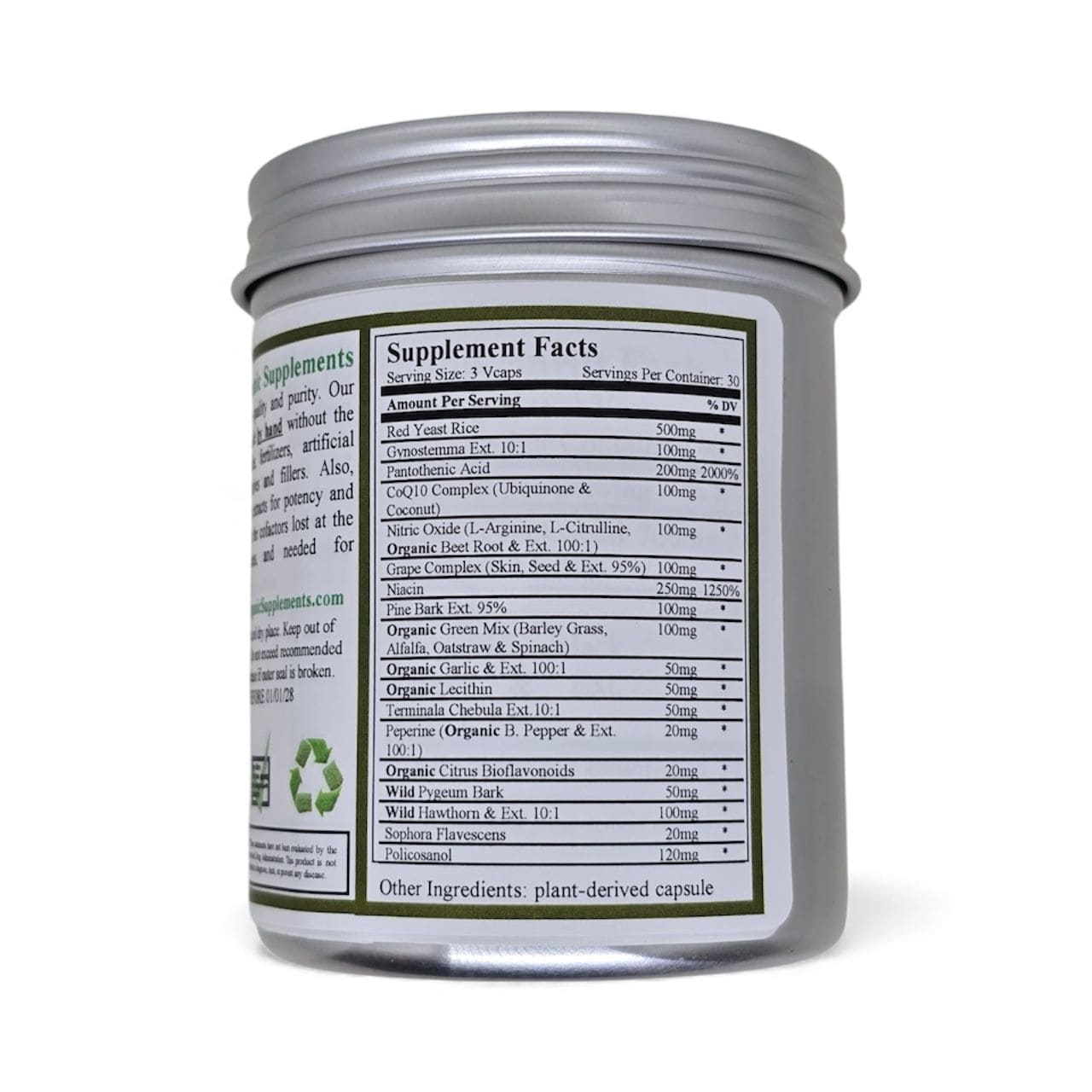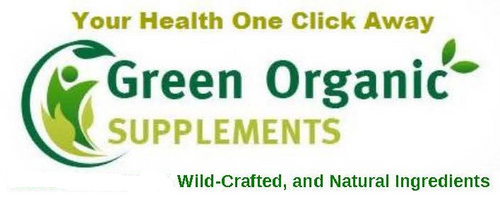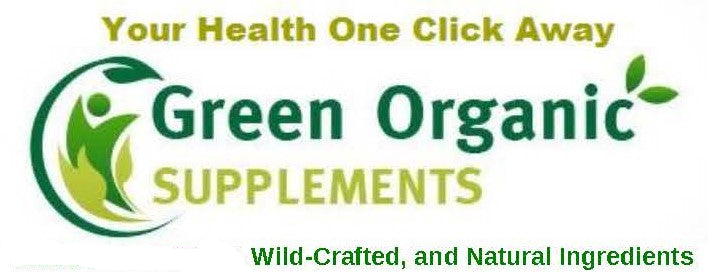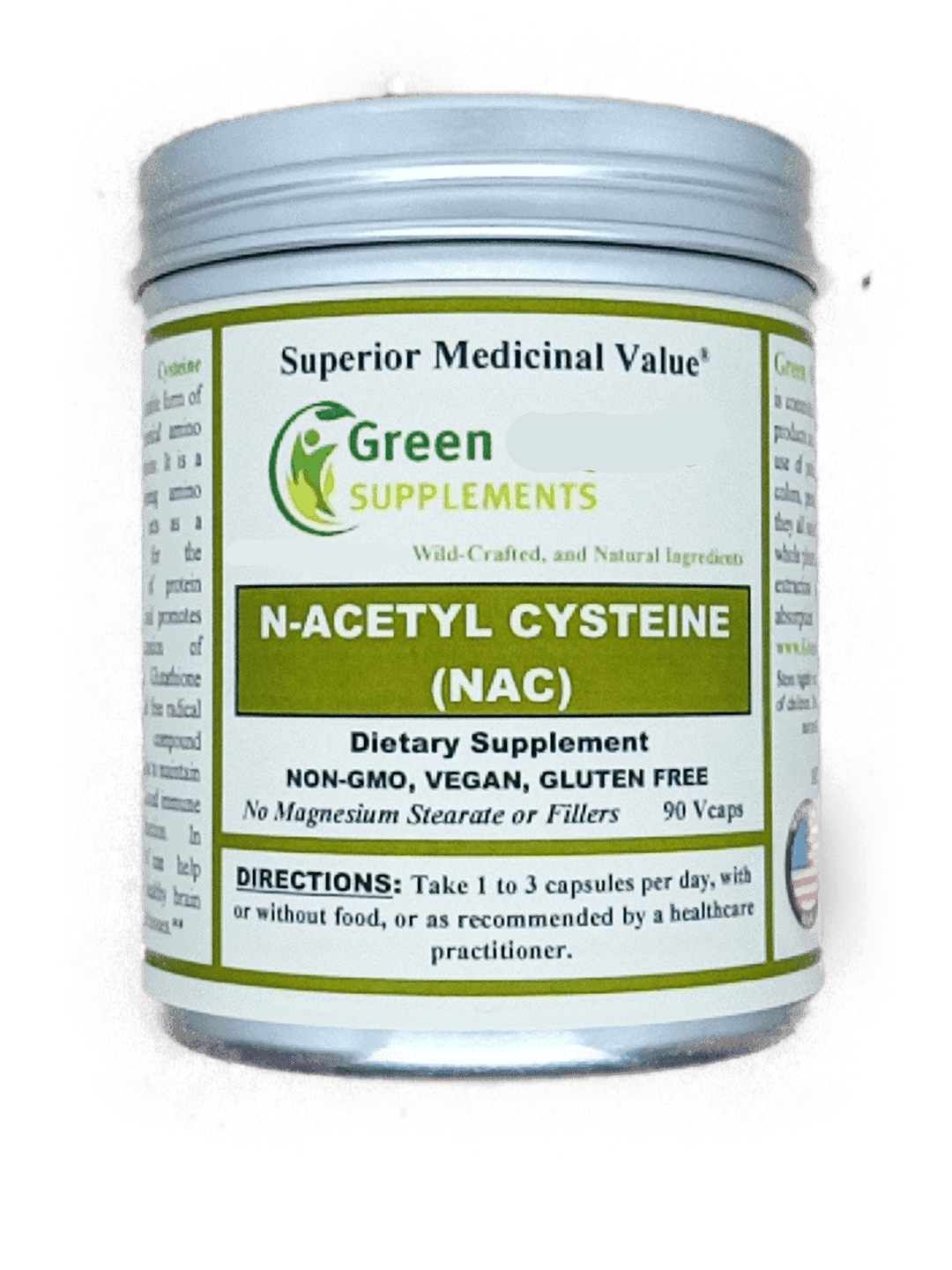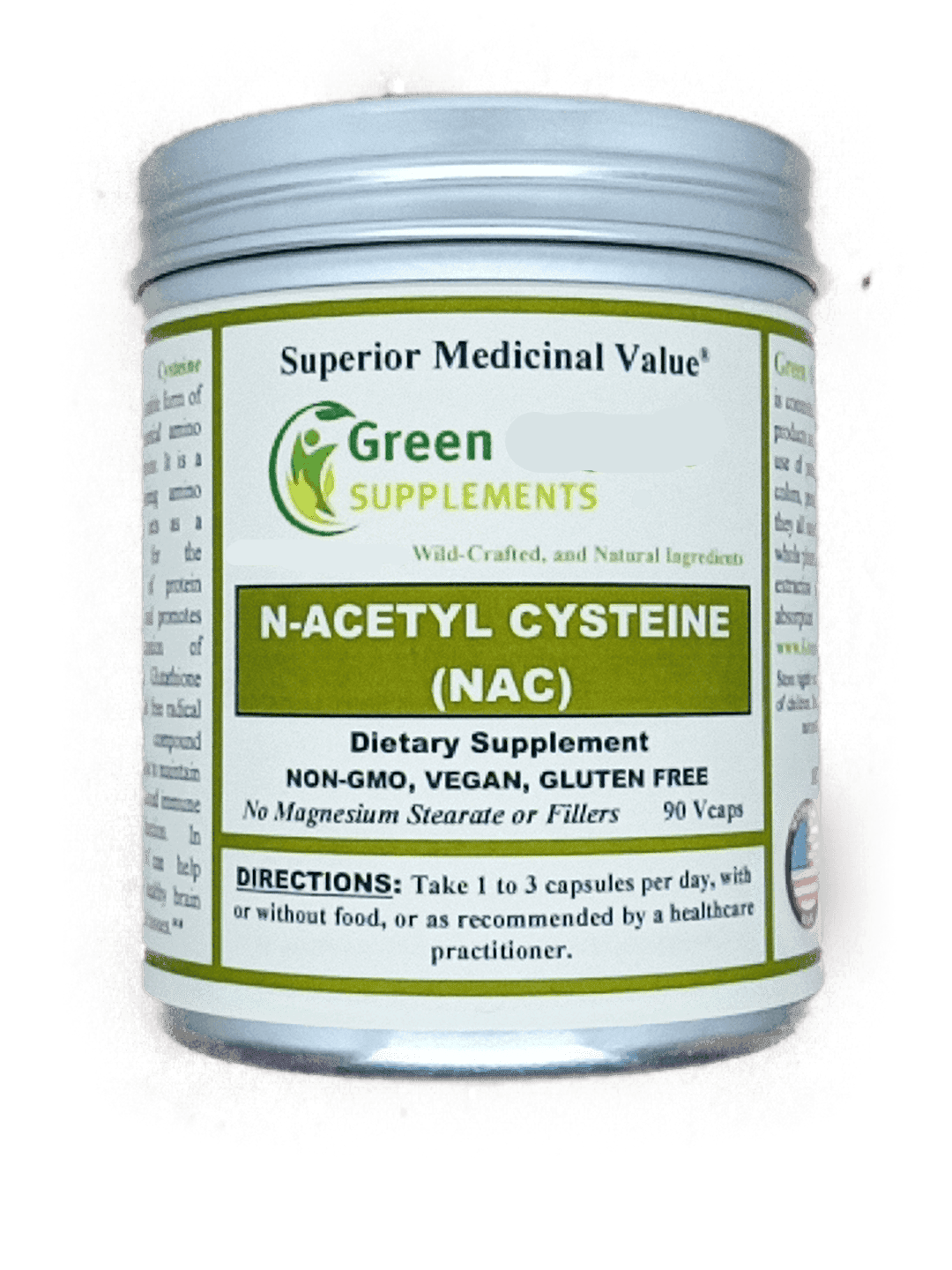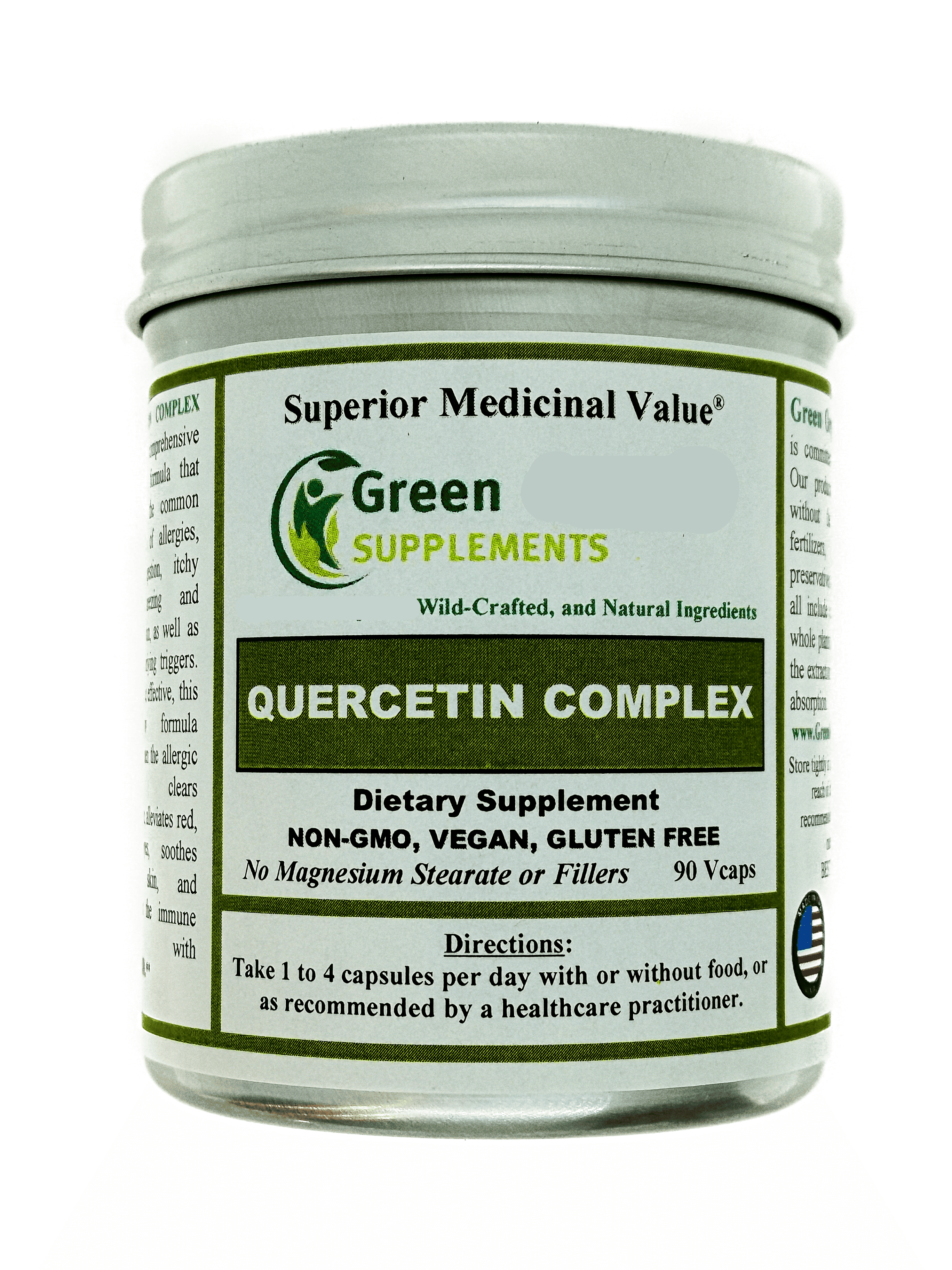Cholesterol Control with Red Yeast Rice, HDH, LDL
- Buy 2 of the same product → 10% OFF
- Buy 3 of the same product → 12% OFF
- Buy 4 of the same product → 13% OFF
- Buy 5 of the same product → 15% OFF
Couldn't load pickup availability
Description
Your Security is Protected
Hand Made, Vegan, Non-GMO, & Gluten Free
This robust formula provides an effective addition to a healthy diet and exercise program helping to support heart function, maintaining healthy cholesterol levels and protecting heart and vascular tissue from the oxidative effects of stress and aging. Cholesterol Control protects the vascular system, supports heart, vascular function, and maintains healthy cholesterol level. Red Yeast Rice is a unique natural product native to China. It is produced by the fermentation of red yeast (Monascus purpureus) with white rice. This product is further enhanced with the addition of CoQ10 to support healthy cardiovascular and immune system function.**
| Supplement Facts | ||
| Serving Size: 3 VCaps | ||
| Serving per Container: 30 | ||
| Amount Per Serving | % DV | |
| Red Yeast Rice | 500mg | * |
| Gynostemma Ext. 10:1 | 100mg | * |
| Pantothenic Acid | 200mg | 2000% |
| CoQ10 Complex (Ubiquinone & Coconut) | 100mg | * |
| Nitric Oxide Complex (L-Arginine, L-Citrulline, Organic Beet Root & Ext. 100:1)1 | 100mg | * |
| Grape Complex (Skin, Seed & Ext. 95%)1 | 100mg | * |
| Niacin | 250mg | 1250% |
| Pine Bark Ext. 95% | 100mg | * |
| Organic Green Mix (Barley Grass, Alfalfa, Oatstraw, & Spinach) | 100mg | * |
| Organic Garlic & Ext. 100:11 | 50mg | * |
| Organic Lecithin | 50mg | * |
| Terminala Chebula Ext. 10:1 | 50mg | * |
| Piperine (Organic Black Pepper & Ext. 100:1)1 | 20mg | * |
| Organic Citrus Bioflavonoids | 20mg | * |
| Wild Pygeum Bark | 50mg | * |
| Wild Hawthorn & Ext. 10:11 | 100mg | * |
| Sophora Flavescens | 20mg | * |
| Policosanol | 120mg | * |
| Pomegranate Ext. 90% | 100mg | * |
| *Daily Value not established. | ||
1Includes the extract for potency and the whole plant for the co-factors lost at the extraction process.
Directions: Take 3 to 6 capsules per day, preferable one capsule in the morning and one at night with food, or as recommended by a healthcare practitioner.
Warnings/Cautions: Not intended for pregnant or lactating women. Individuals with liver disease or those currently taking any medications should consult with a health care practitioner prior to use.
Price: $31.98
What Is Cholesterol
Cholesterol is a waxy, fat-like substance that’s found in all cells of the body.
Your body needs some cholesterol to make hormones, vitamin D, and substances that help you digest foods. Your body makes all the cholesterol it needs. However, cholesterol also is found in some of the foods you eat.
Cholesterol travels through your bloodstream in small packages called lipoproteins (lip-o-PRO-teens). These packages are made of fat (lipid) on the inside and proteins on the outside.
Two kinds of lipoproteins carry cholesterol throughout your body: low-density lipoproteins (LDL) and high-density lipoproteins (HDL). Having healthy levels of both types of lipoproteins is important. LDL cholesterol sometimes is called “bad” cholesterol. A high LDL level leads to a buildup of cholesterol in your arteries. (Arteries are blood vessels that carry blood from your heart to your body.) HDL cholesterol sometimes is called “good” cholesterol. This is because it carries cholesterol from other parts of your body back to your liver. Your liver removes the cholesterol from your body.
What Is High Blood Cholesterol?
High blood cholesterol is a condition in which you have too much cholesterol in your blood. By itself, the condition usually has no signs or symptoms. Thus, many people don’t know that their cholesterol levels are too high.
People who have high blood cholesterol have a greater chance of getting coronary heart disease, also called coronary artery disease.
The higher the level of LDL cholesterol in your blood, the GREATER your chance is of getting heart disease. The higher the level of HDL cholesterol in your blood, the LOWER your chance is of getting heart disease, but latest studies shows that coronary heart disease depends on many other factors than just higher the level of LDL cholesterol.
Physiology
Cholesterol is essential for all life, each cell synthesizes it from simpler molecules. However, normal and particularly high levels of fats (including cholesterol) in the blood circulation, depending on how they are transported within lipoproteins, are strongly associated with the progression of atherosclerosis.
For a man of about 68 kg (150 lb), typical total body-cholesterol synthesis is approximately 1 g (1,000 mg) per day, and total body content is approximately 35 g, primarily located within the membranes of all the cells of the body. Typical daily dietary intake of additional cholesterol for a man in the United States is 307 mg, which is above the upper limit recommended by the Dietary Guidelines Advisory Committee.
Most ingested cholesterol is esterified, and esterified cholesterol is poorly absorbed. The body also compensates for any absorption of additional cholesterol by reducing cholesterol synthesis. For these reasons, seven to ten hours after ingestion, cholesterol will show little, if any, effect on total body cholesterol content or concentrations of cholesterol in the blood. However, during the first seven hours after ingestion of cholesterol, the levels significantly increase.
Cholesterol is recycled. The liver excretes it in a non-esterified form (via bile) into the digestive tract. Typically about 50% of the excreted cholesterol is reabsorbed by the small bowel back into the bloodstream.
Plants make cholesterol in very small amounts. Plants manufacture phytosterols (substances chemically similar to cholesterol produced within plants), which can compete with cholesterol for reabsorption in the intestinal tract, thus potentially reducing cholesterol reabsorption. When intestinal lining cells absorb phytosterols, in place of cholesterol, they usually excrete the phytosterol molecules back into the GI tract, an important protective mechanism.
Function
Cholesterol is required to build and maintain membranes. Recent studies show that cholesterol is also implicated in cell signaling processes, assisting in the formation of lipid rafts in the plasma membrane. Within cells, cholesterol is the precursor molecule in several biochemical pathways. In the liver, cholesterol is converted to bile, which is then stored in the gallbladder. Bile contains bile salts, which solubilize fats in the digestive tract and aid in the intestinal absorption of fat molecules as well as the fat-soluble vitamins, A, D, E, and K. Cholesterol is an important precursor molecule for the synthesis of vitamin D and the steroid hormones, including the adrenal gland hormones cortisol and aldosterone, as well as the sex hormones progesterone, estrogens, and testosterone, and their derivatives.
Some research indicates cholesterol may act as an antioxidant.
References
WebMD
NHLBI
Related Terms : cholesterol control supplements, natural cholesterol control supplements, cholesterol control foods, red yeast rice dosage for cholesterol control, supplements for cholesterol control, red yeast rice extract supplement, best rated red yeast rice supplement
